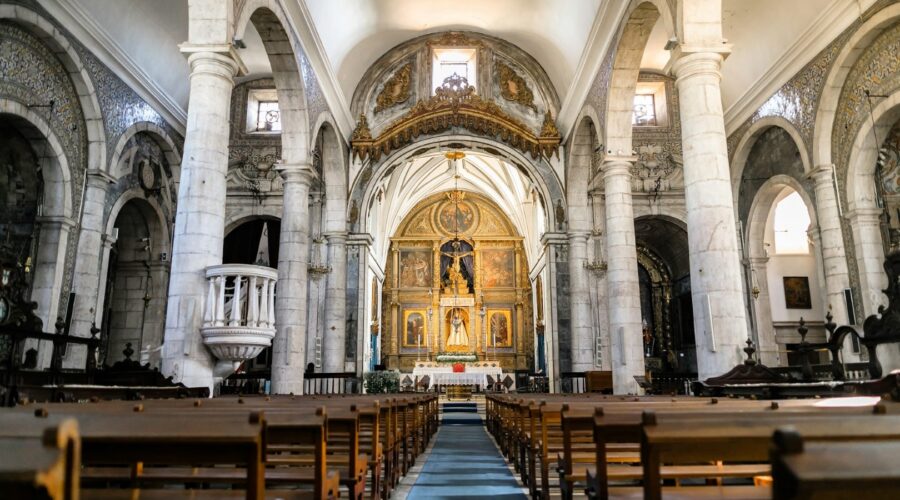Your cart is currently empty!
John the Baptist: The Forerunner of Christ

Introduction
John the Baptist, a enigmatic and influential figure, played a pivotal role in the history of Christianity. As the forerunner of Jesus Christ, he prepared the way for the Messiah’s arrival and proclaimed the coming of redemption. This comprehensive guide explores the life, teachings, and legacy of John the Baptist, shedding light on his significance in biblical and historical contexts.
Early Life and Ministry
- Lineage and Birth: John was born into a priestly family, with his father Zechariah serving as a priest in the Temple in Jerusalem. His mother Elizabeth was a descendant of Aaron, the brother of Moses.
- Birth Announcement: John’s birth was miraculously announced to Zechariah by the angel Gabriel while he was serving in the Temple. Elizabeth was barren and had passed the age of childbearing.
- Baptism and Wilderness Years: As an adult, John embarked on a ministry of baptism. He baptized people in the Jordan River, calling them to repentance and forgiveness of sins. He also spent significant time in the wilderness, living an ascetic life of prayer and meditation.
Prophecies and Preparation
- Fulfillment of Prophecy: John’s birth and ministry fulfilled several Old Testament prophecies about the coming of a messenger who would prepare the way for the Messiah. He was described as the “voice crying in the wilderness” (Isaiah 40:3).
- Preparing the Way: John’s baptism and preaching served as a catalyst for spiritual renewal and repentance. He urged people to turn away from their sins and prepare for the coming of the Messiah who would bring salvation.
- Elijah the Prophet: Jesus himself identified John as the prophesied return of Elijah the prophet. John’s fiery preaching, confrontational nature, and wilderness ministry paralleled Elijah’s life and ministry.
Meeting and Baptizing Jesus
- Recognition of Jesus: When Jesus came to be baptized by John, John initially hesitated due to Jesus’ sinless nature. However, Jesus insisted, and John recognized him as the long-awaited Messiah.
- Baptism of Jesus: As Jesus emerged from the waters, a dove descended from heaven and a voice proclaimed, “This is my beloved Son, in whom I am well pleased.” This marked the beginning of Jesus’ public ministry.
- Significance of the Baptism: Jesus’ baptism by John symbolized the transfer of authority and the commencement of the new covenant between God and humanity.
Imprisonment and Execution
- Confrontation with Herod: John’s outspoken criticism of Herod Antipas, the tetrarch of Galilee and Perea, for his adulterous relationship with Herodias, his brother Philip’s wife, led to his arrest.
- Imprisonment and Influence: John was imprisoned at the fortress of Machaerus in Jordan. Despite his confinement, his disciples continued to spread his message throughout the region.
- Execution: At a banquet held by Herod to celebrate his birthday, Salome, Herodias’ daughter, performed a dance that pleased him. As a reward, Salome requested to have John’s head brought to her on a platter. Herod reluctantly granted her wish.
Legacy and Significance
- Forerunner of Christ: John the Baptist’s primary legacy is his role as the forerunner of Jesus Christ. He paved the way for Jesus’ ministry, proclaiming his coming and calling people to repentance.
- Influence on Christianity: John’s teachings and martyrdom had a profound impact on the development of Christianity. His emphasis on repentance, baptism, and the coming of the Messiah became foundational beliefs of the Christian faith.
- Sainthood: Both the Catholic and Eastern Orthodox churches recognize John the Baptist as a saint. He is commemorated on June 24th, the traditional date of his martyrdom.
Additional Information
- John the Baptist in the Gospels: John the Baptist is prominently featured in all four Gospels (Matthew, Mark, Luke, and John), where his ministry and interaction with Jesus are recounted in detail.
- Archaeological Evidence: Several archaeological discoveries, including the site of Bethany beyond the Jordan where John is believed to have baptized Jesus, provide historical evidence supporting his existence and ministry.
- Related Figures: John the Baptist had a close relationship with his cousin, Jesus Christ, and encountered other biblical figures such as Herod Antipas, Salome, and the apostles.
Conclusion
John the Baptist stands as a pivotal figure in the biblical narrative, serving as the forerunner of Jesus Christ and the catalyst for spiritual renewal. His life and teachings played a crucial role in the establishment of Christianity, and his legacy continues to inspire and challenge believers today. John’s message of repentance, preparation, and the coming of salvation remains a timeless reminder of the transformative power of God’s grace.